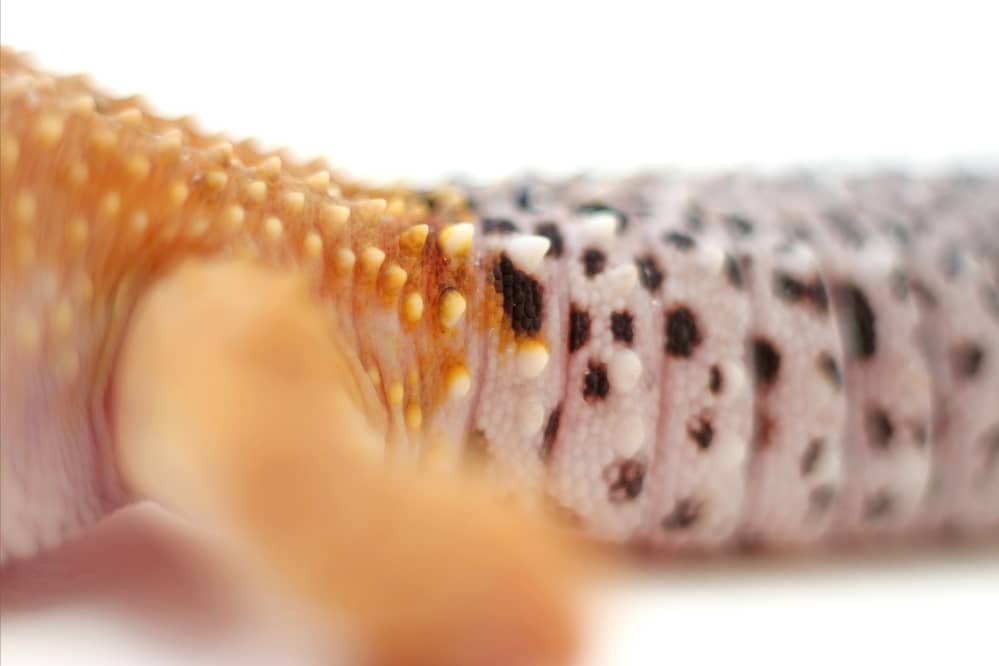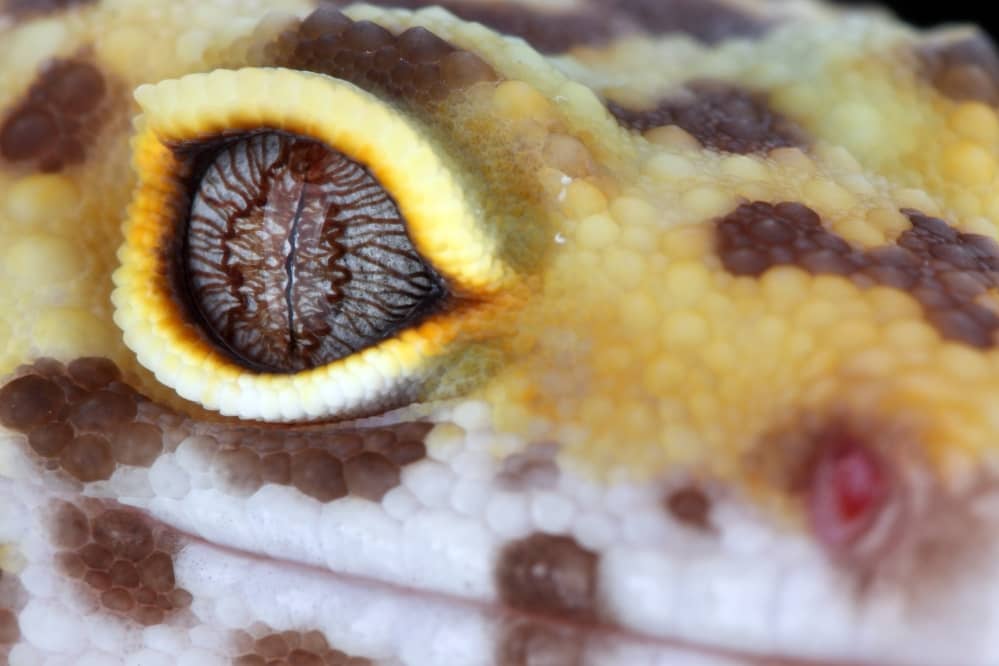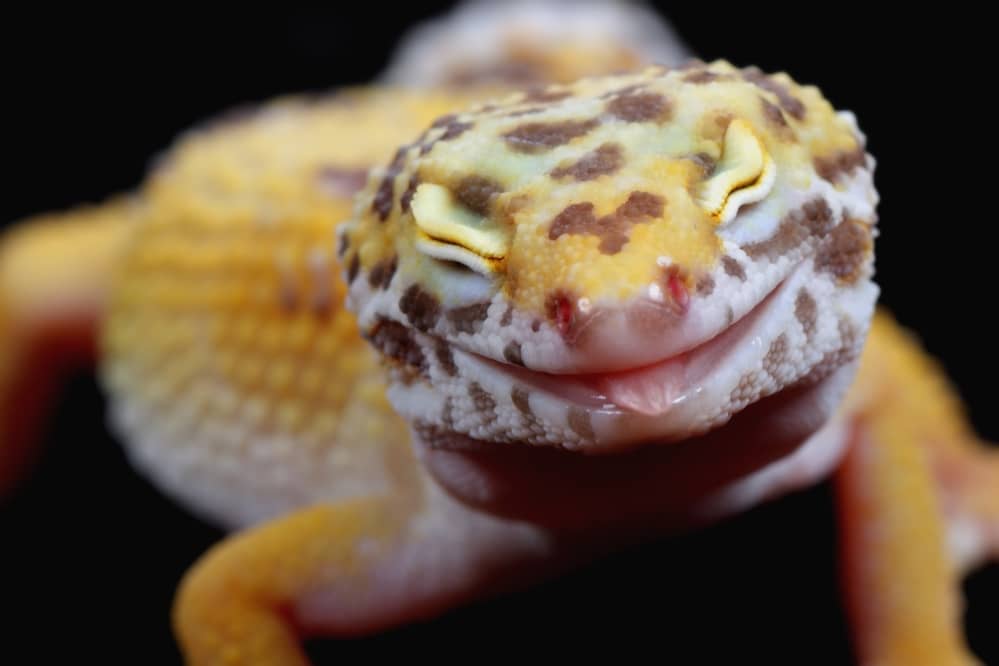Is My Leopard Gecko Dying? Let’s discuss Leopard Gecko Dying Signs. Leopard geckos are resilient lizards with life spans of up to 20 years and are rarely ill. This means little when you observe your reptilian pet behaving abnormally and dread the worst. Because Leopard Geckos are so resilient, they conceal illness well, and their metabolism is so sluggish that they typically do not exhibit symptoms until a disease has developed to the point where they require prompt medical attention.
Leopard Gecko Dying Signs
Fortunately, numerous indicators indicate that your reptile is in imminent danger, and keeping an eye out for these indicators will allow you to treat your pet before it’s too late. Here are 5 signs of a dying leopard gecko and what you may do about it.
1. Significant weight loss
Rapid weight loss is the first indication of a problem. If you’ve observed your gecko dropping weight rapidly over a short period, an underlying sickness may be the cause. This could occur for various reasons, including inadequate food, bad living conditions, diseases, and parasites. The first symptom of weight loss is typically observed in the tail; Leopard Geckos store fat stores in their tails and will survive on these reserves if they cannot find food. A tail that is thinner than usual is the first indicator of weight loss.

On average, a male Leopard Gecko weighs between 60-80 grams and females between 50-70 grams. If your gecko’s weight has suddenly dropped below this level, take it to a veterinarian immediately.
2. Absence of appetite
Appetite loss is an unmistakable indicator of disease in many species, including geckos. Before you become alarmed, it’s possible that your Gecko is simply tired from their meal; therefore, you may wish to try switching it around. Ensure that the temperature and humidity of your pet’s enclosure are optimal, as these factors may exacerbate their lack of appetite.
If your Gecko is not agitated or dehydrated and their tank is in ideal condition, there may be a more severe issue. You should see veterinarian ASAP.
Related article Why Is My Leopard Gecko Not Eating?
3. Abnormal feces
A reduction in abnormal or significant droppings is another sign that something is amiss. There is a substantial problem with your reptile if there are no droppings for more than a few days. Impaction is one of the most frequent causes of abrupt death in Geckos. This occurs when an individual consumes something they are not supposed to, resulting in a blockage or digestive difficulties. When detected early, the problem can be resolved, and your pet can be treated; if left untreated, impaction can quickly result in death.
Impaction can result in irregular or diminished feces, but there are often no discharge of feces. If you observe a dramatic change in your Gecko’s droppings, you must immediately take them to a veterinarian.
4. Lethargy
Curiosity, zeal, and vitality are common indicators of health and pleasure in gecko populations. It could indicate illness if you’ve observed a rapid decline in your gecko’s disposition and activity levels. If you follow a sick gecko hiding in one location and not moving for several hours, you must immediately take it to the veterinarian.
5. Sunken eyes
One of the most endearing characteristics of leopard geckos is the beauty of their eyes. Therefore, it is easy to identify individuals with sunken eyes because the difference is rather apparent. Typically, this is caused by dehydration. Their enclosure may be too dry, they may not have been misted adequately, or they may not have access to water.

Many people do not realize that this also occurs before the onset of a significant sickness. As a result, you must inspect your leopard gecko’s eyes more frequently than you believe, as they are almost always the first sign of illness. In several leopard gecko forums, numerous owners have discussed a peculiar phenomenon: sunken eyes are the first symptom of an imminent disease, and if they do not immediately take their leopard geckos to the veterinarian, the animals become unwell. There have been so many similar occurrences that judging whether leopard geckos will become ill by observing their eyes has become standard practice.
Keep in mind that during the day, the eyes of a leopard gecko dip somewhat because they sometimes drag their eyelids over their eyes, thereby protecting them. As the day continued, their eyes would regain their original appearance. Therefore, it is safe to assume that leopard gecko sunken eyes are sign of imminent illness.
How to protect Leopard Geckos from disease
Although a few diseases are difficult to avoid, there are a number of strategies to prevent your gecko from being dangerously ill. With adequate care, geckos are generally robust, and healthy reptiles that rarely become ill. Here are some methods for preventing disease in your leopard gecko:
- Keep your gecko’s enclosure free of feces and stale food.
- Ensure that they consume an appropriate and healthy diet.
- Wash the hands before and after handling your gecko.
- Ensure their tank is always at the proper humidity and temperature.
- Ensure there is nothing in their cage that could cause impaction.
Is it possible to self-treat a sick Leopard Gecko?
A few ailments are self-treatable, but only if they are relatively small and have not progressed significantly. Prevention and treatment of dehydration are easy: Ensure your gecko has sufficient clean water to drink! Ensure that the humidity in their cage is ideal. Early-stage minor impactions can be managed at home with a warm bath and gentle abdominal massage. This may be sufficient to release the stool and clear the obstruction, but if it doesn’t work within a few hours, it’s advisable to take the animal to veterinarian.
Conclusion
Regardless of the type of pet you own, they are a vital part of your life, and if you fear that they have a life-threatening condition, it may be very distressing and stressful. If you observe any of these symptoms, the best action is an immediate trip to the veterinarian, as even a few hours can mean life or death. In addition, geckos are skilled at concealing disease, so even the most minor indicators require prompt action.

